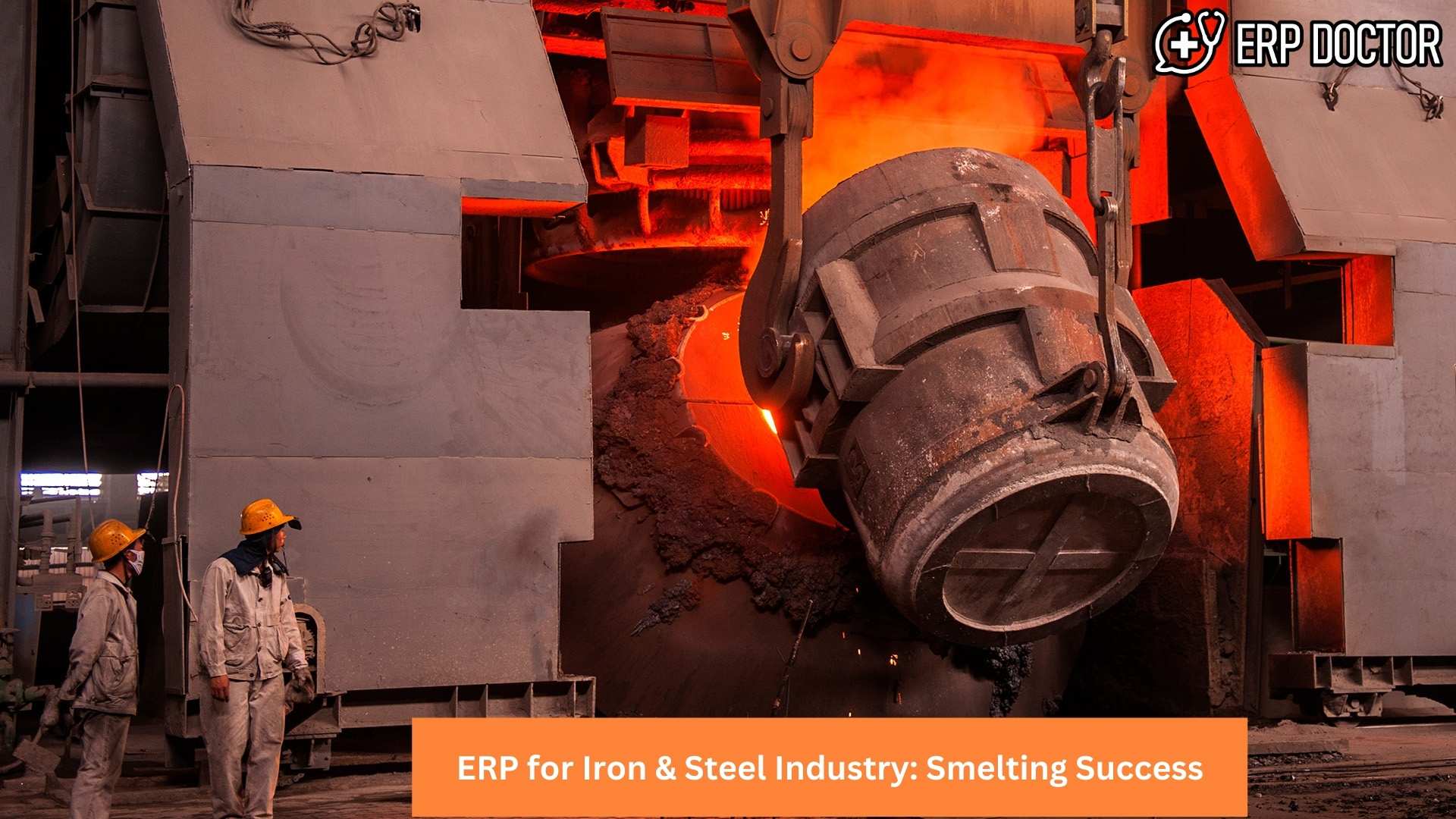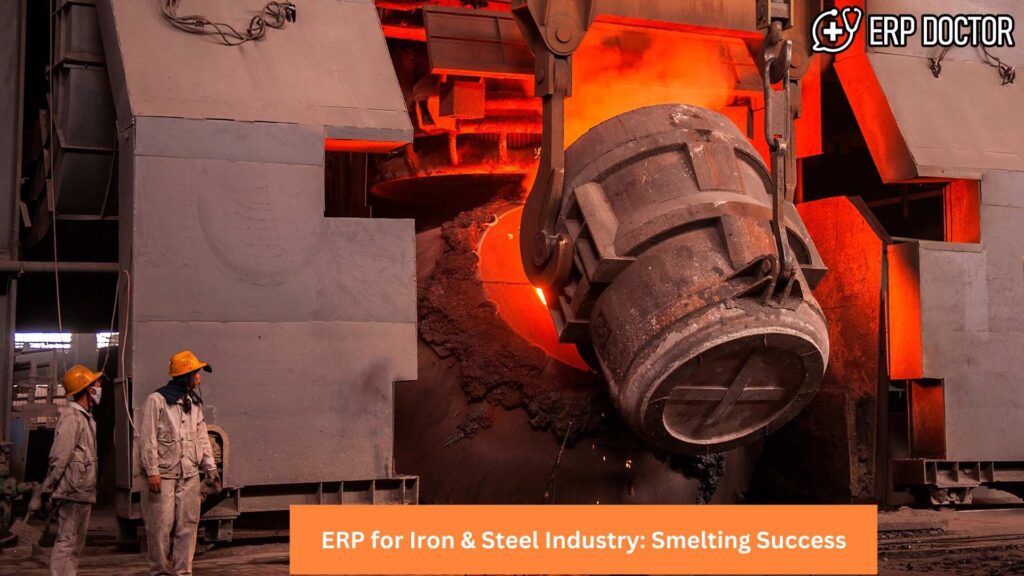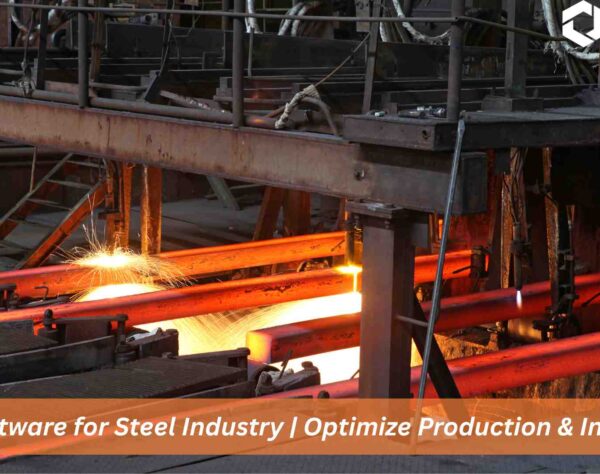
ERP for Iron & Steel Industry: Smelting Success

ERP for Iron & Steel Industry: The Key to Smelting Success & Operational Excellence
The Iron & Steel Industry is the backbone of global infrastructure, supplying essential materials for construction, automotive, aerospace, and manufacturing sectors. However, this industry operates within a highly complex ecosystem, where supply chain disruptions, fluctuating raw material costs, environmental regulations, and operational inefficiencies pose constant challenges. To maintain competitiveness, industry leaders must embrace digital transformation.
Why ERP is Essential for the Iron & Steel Industry
Enterprise Resource Planning (ERP) solutions provide an integrated approach to managing production, inventory, financials, compliance, and customer relations, ensuring seamless and efficient operations. By implementing an ERP system, steel manufacturers can streamline workflows, reduce costs, and enhance decision-making with real-time insights.
Key Challenges in the Iron & Steel Industry
- Raw Material Cost Volatility – The prices of iron ore, coal, and other raw materials fluctuate due to market demand, geopolitical factors, and supply chain disruptions. Managing these variations effectively is crucial for profitability.
- Regulatory Compliance – Stringent environmental and safety regulations demand accurate reporting and adherence to international standards.
- Supply Chain Complexity – Managing a vast network of suppliers, logistics, and warehousing is critical to ensuring timely delivery of raw materials and finished products.
- Production Bottlenecks – Downtime and inefficient scheduling can lead to production delays, impacting customer commitments and increasing operational costs.
- Quality Control – Consistency in steel grades and specifications is vital to meeting customer and regulatory expectations.
- Energy Consumption – Steel production is energy-intensive, and inefficiencies lead to high costs and increased carbon emissions.
- Inventory Management – Overstocking ties up capital, while understocking results in production slowdowns and delivery delays.
How ERP Transforms the Iron & Steel Industry
A robust ERP system integrates all aspects of a steel manufacturing business, ensuring operational excellence through:
1. Real-time Inventory Management
ERP systems provide accurate tracking of raw materials, work-in-progress, and finished goods, preventing shortages and overstocking. This ensures uninterrupted production while optimizing storage costs.
2. Production Planning & Scheduling
Automated production scheduling minimizes downtime, balances workload distribution, and ensures that manufacturing targets are met efficiently. ERP also integrates IoT-enabled sensors to monitor equipment health and predict maintenance needs.
3. Raw Material Cost Control
With market fluctuations affecting profitability, ERP offers advanced analytics to track pricing trends, manage supplier contracts, and optimize procurement strategies.
4. Regulatory & Environmental Compliance
Automated compliance tracking ensures adherence to safety, environmental, and labor regulations, reducing legal risks and enhancing corporate reputation.
5. Data-Driven Decision Making
ERP systems consolidate and analyze real-time production, sales, and financial data, allowing business leaders to make informed strategic decisions.
Key Features of ERP for Iron & Steel Industry
- Automated Supply Chain Management – Streamlines procurement, supplier evaluation, and logistics, ensuring timely deliveries.
- Advanced Quality Control – Implements real-time quality checks and defect tracking to maintain consistency in production.
- Production Workflow Automation – Reduces human errors, enhances productivity, and prevents bottlenecks.
- Cost Analysis & Budgeting – Provides real-time expense tracking and financial forecasting for better financial control.
- Equipment Maintenance Management – Predictive maintenance prevents unexpected equipment failures and costly downtime.
- Logistics & Distribution Tracking – Ensures smooth transportation and timely deliveries, improving customer satisfaction.
- Multi-Location Operations Management – Centralizes data and standardizes processes across multiple plants and warehouses.
- Regulatory & Environmental Compliance – Enables businesses to track and meet global environmental and safety regulations.
Benefits of ERP for Steel Manufacturers
✅ Increased Productivity – Automates processes, reduces manual tasks, and optimizes resource allocation.
✅ Cost Reduction – Eliminates waste, streamlines procurement, and optimizes energy usage.
✅ Enhanced Decision-Making – Provides real-time business intelligence and predictive analytics.
✅ Better Customer Relations – Enables accurate order tracking, faster deliveries, and improved customer service.
✅ Scalability & Flexibility – Supports business expansion with modular features adaptable to company needs.
Frequently Asked Questions (FAQs)
1. How does ERP improve the efficiency of steel rolling mills?
ERP automates production planning, scheduling, and quality control, reducing downtime and enhancing product consistency.
2. Can ERP help iron and steel companies manage volatile raw material prices?
Yes, ERP tracks market trends and supplier contracts, optimizing procurement to reduce costs.
3. How does ERP support energy efficiency in steel manufacturing?
ERP monitors energy consumption patterns, identifies inefficiencies, and suggests optimizations to lower costs.
4. What role does ERP play in regulatory compliance for steel manufacturers?
ERP ensures adherence to environmental, safety, and labor regulations by automating reporting and audits.
5. Can ERP integrate with IoT in the Iron & Steel Industry?
Yes, ERP connects with IoT-enabled devices for real-time monitoring of equipment performance, predictive maintenance, and energy efficiency tracking.
6. How does ERP handle multi-location steel manufacturing operations?
ERP centralizes data, standardizes workflows, and ensures seamless coordination between different plants and warehouses.
7. Does ERP help in waste management and sustainability in the steel industry?
Yes, ERP tracks waste generation, recycling, and carbon footprint to align with sustainability goals.
8. How does ERP enhance customer order fulfillment in the Iron & Steel Industry?
ERP improves order processing, inventory tracking, and logistics management to ensure timely and accurate deliveries.
9. Can ERP solutions be customized for different types of steel production?
Yes, ERP can be tailored for long products, flat products, and specialty steel manufacturing to meet unique business needs.
10. What is the ROI of implementing ERP in the Iron & Steel Industry?
ERP delivers substantial ROI through cost savings, efficiency gains, and improved operational agility.
The future of steel manufacturing is driven by digital transformation, where ERP plays a crucial role in automation, AI-driven analytics, and Industry 4.0 integration. Companies leveraging ERP are not just optimizing their present operations but preparing for a smarter, more sustainable future.
🚀 Ready to transform your steel business? Explore the best ERP solutions today!




